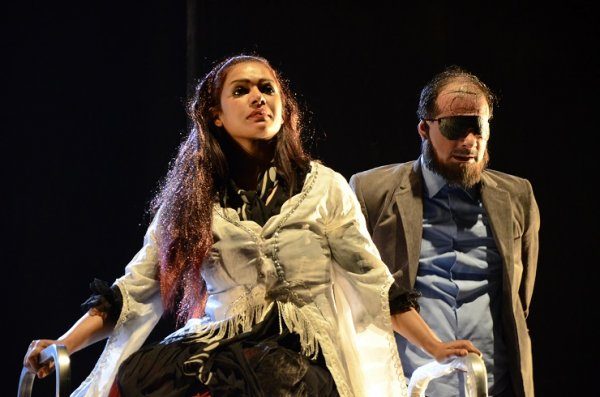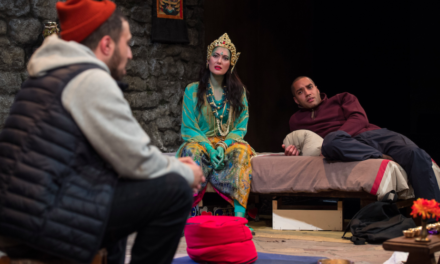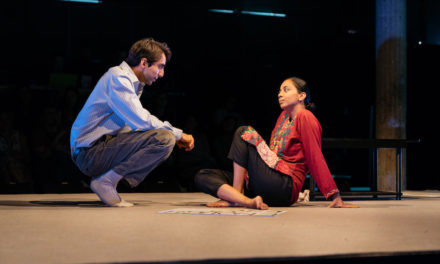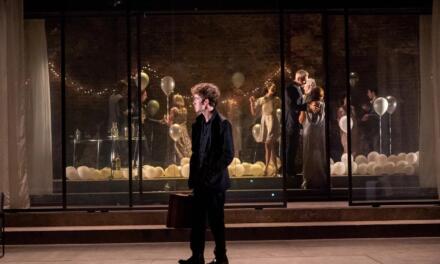Nine plays by Iraqi dramatists have been published by Methuen Drama as Contemporary Plays from Iraq, edited and translated by A. Al-Azraki and James Al-Shamma. Taken together, the plays demonstrate the range of concerns that preoccupy Iraqi playwrights with a focus on the effect of sustained, collective trauma visited upon the populace under the dictatorship of Saddam Hussein followed by the US-led invasion of 2003 and ensuing occupation. These playwrights address, as well, the sectarian violence that flared up during the occupation and continues to plague the country. Although an oppressive sense of grief permeates many of these works, the resiliency of the Iraqi character is celebrated as well, and a few of the writers take a humorous approach. Those represented in the collection include both established and emerging, male and female, writers from central and southern Iraq and Iraqi Kurdistan.
Two of the plays were written before the 2003 invasion. In Hoshang Waziri’s The Takeover, from the late 1990s, two sisters who are war widows, one of whom has lost her mind, fight for control of their house against the incursion of a supposed friend. This depiction of a territorial power struggle would certainly have had relevance to Iraqis struggling to get by under the UN-imposed sanctions of the 1990s, which impoverished the country but left Hussein in charge. The second play written before 2003, A Cradle, by Abdul-Kareem Al-Ameri, is a poetic meditation on the aftermath of war and the persistence and/or futility of hope. In a childless village, a carpenter fashions coffins and cradles as the townspeople anticipate the birth of a messianic boy. Young soldiers, crippled in combat, lament their ruined lives, and a father gone mad grieves for his daughter, who was killed in a random shelling. Both of these plays were remounted after the invasion due to their continued relevance.
In Ishtar in Baghdad, Rasha Fadhil deposits a Mesopotamian goddess into battle-ravaged Baghdad, where she and her consort are captured and tortured by American soldiers. Fadhil references the Abu Ghraib scandal while promoting a resilient Iraqi national identity by way of the deities, who resist in the face of adversity. As in The Takeover, Abdel-Nabi Al-Zaidi tells the story of a war widow in Summer Rain. The widows have been plentiful in Iraq following the war with Iran during the 1980s and the Gulf War of 1991. In this science-fiction comedy, the government supplies clones to replace war casualties. Just as the protagonist has become convinced that a clone is her actual husband, through some glitch a second copy of her spouse arrives and a bedroom farce commences. Monadhil Daoud Albayati adapts Shakespeare’s tragedy in Romeo and Juliet in Baghdad with the rival families divided along sectarian lines. In this version, Capulet and Montague are brothers vying for control of a ship, which serves as a metaphor for the Iraqi state. Their rivalry wreaks havoc on the younger generation.
Awatif Naim took the title of Me, Torture, and Your Love from a popular song. A rich man down on his luck and a tramp ponder the meaning of life and find common value in belonging to a homeland, no matter how beleaguered it is. In Abdul Razaq Al-Rubai’s A Strange Bird on Our Roof, a mother and daughter discover that the American soldier standing watch over their home is sympathetic to their plight, but that their recognition of a shared humanity can do little to halt the machinery of war. In the comedy Cartoon Dreams, by Kareem Sheghaidil, characters from various strata of Iraqi society share their hopes and fears as they board an airplane to vacation outside of the country, a prospect that was impossible for most Iraqis under Hussein’s regime. A young professor flees Iraq for Canada to escape sectarian retaliation for his liberal views in A. Al-Azraki’s The Widow, but finds his new situation less than ideal. He leaves behind the widow of the title, with whom he has been having an affair, and must deal with the consequences of his flight.
Most of these works end in tragedy; a few offer hope for the future or at least a dose of humor. As the still-young Iraqi democracy struggles to overcome inefficiency and corruption, and expel the Islamic State, its playwrights will continue to reflect on the state of their nation.
This post was written by the author in their personal capacity.The opinions expressed in this article are the author’s own and do not reflect the view of The Theatre Times, their staff or collaborators.
This post was written by James Al-Shamma.
The views expressed here belong to the author and do not necessarily reflect our views and opinions.


















